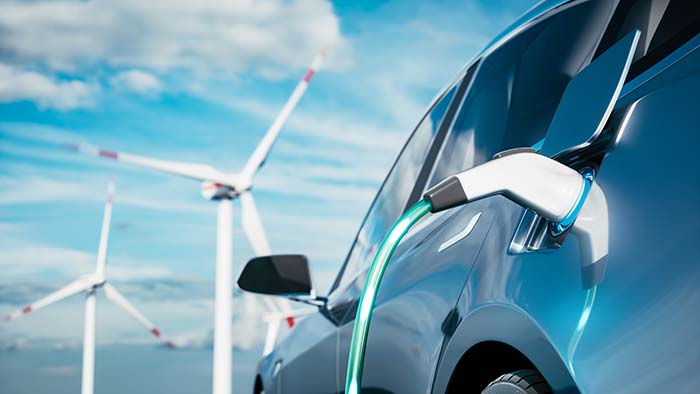 NOVOSENSE Microelectronics, a semiconductor company specializing in high-performance analog and mixed-signal chips, has announced the completion and publication of its 2023 independent environmental, social and governance (ESG) report. The detailed report outlines the company’s progress against its targets and reaffirms its commitment to the UN’s Sustainable Development Goals, in particular those on the environment, ethics and equity.
NOVOSENSE Microelectronics, a semiconductor company specializing in high-performance analog and mixed-signal chips, has announced the completion and publication of its 2023 independent environmental, social and governance (ESG) report. The detailed report outlines the company’s progress against its targets and reaffirms its commitment to the UN’s Sustainable Development Goals, in particular those on the environment, ethics and equity.
NOVOSENSE’s products are targeted towards helping the automotive and industrial power-generation industries to reduce their environmental impact. The company’s ESG governance is overseen at board level and this audit, its second annual report, analyses the effects of its ESG policies on all aspects of NOVOSENSE’s work: from operations and HR to procurement and R&D.
Highlights from the report include the emphasis placed on staff welfare and safety as well as the implemented measures that are reducing the company’s reliance on traditional energy sources, notably the construction of new energy-efficient facilities and the development of a server designed to reduce its energy consumption by over 300,000 kWh per year from 2025.
“The company’s R&D and operations teams continue to innovate with products that help decarbonize the automotive and industrial energy sectors. But it’s critical that we not only look at the impact we deliver for our customers, but at how we can improve too,” said Hugh Wang, Founder, Chairman and CEO of NOVOSENSE Microelectronics.
“These independent evaluations of our operations allow us to continually learn and improve the ways in which we strive to reduce our impact, support our staff, and conduct our business. Indeed, they play a vital role in guiding our board and enable ever more positive steps to be taken.”
The full report can be downloaded from this link. A summary of its findings can be seen below.
Summary of key findings:
Equality, equity and staff welfare
NOVOSENSE’s listed core company values are “Robust, Reliable, Keep Learning, Persist in Long-term Value”, and these can all be seen among the report’s top-ranked priorities.
In the section on employee welfare, the report stated NOVOSENSE has actively responded to the UN’s Sustainable Development Goals 3, 4, 5, 8, and 10, which cover staff well-being, education, gender equality, economic growth and equity.
The report highlighted not only the company’s various training programs, but also its use of surveys to continually improve working conditions and staff satisfaction; its well-established equal-opportunity and diverse-hiring policies that are delivering a more balanced workforce; and the steps taken to foster open communications – notably its regular ‘Roundtable’ events for staff to raise queries and discuss business updates with senior management, and the company’s twice-annual ‘Townhall Meetings’ that communicate the company’s direction, values and technological breakthroughs.
The report also highlighted the voting incentive measures enacted by NOVOSENSE, stating restricted-voting shares had been granted 507 times during the year to members across its 859-strong workforce. A total of 8 million shares have been granted to date.
Environmental impact
NOVOSENSE has focused its business strategy on developing smart, connected semiconductors that reduce the environmental impact of the automotive and industrial energy systems, including generation and transmission.
The report highlighted NOVOSENSE’s ISO 14001 Environmental Management Systems certification and steps taken to comply with UN Sustainable Development Goals 6, 7, 9, 11, 13 and 17, which relate to sustainable R&D as well as a low-carbon development approach.
It also cited positive steps in reducing the company’s own footprint, notably its green development philosophy, as well as significant measures taken to practice energy-conservation and consumption-reduction measures to further-minimize effects on biodiversity and the environment from the company’s operations.
And while the report highlighted that its NAXIWEI subsidiary’s commencement of operation significantly increased the entire NOVOSENSE Group’s CO2 emissions and water consumption versus 2022, the report cited several positive steps taken to reduce the impact of non NAXIWEI operations. These included the commission of a new server design and the construction of a new Suzhou-based office, designed to reduce the company’s dependence on traditional energy sources. The server design is expected to reduce NOVOSENSE’s electricity consumption by more than 300,000 kWh per year from 2025, which equates to over 10% of NOVOSENSE’s non-NAXIWEI energy usage. The new Suzhou office has been designed to minimize impact using energy-saving materials, conservation technologies, and its implementation of PV electric generation for powering the building.
The company has also enacted measures to mitigate the impact of its business travel and delivery services, partnering with AutoNavi to provide electric vehicles for business travel and delivery services, a move that enabled carbon emission reductions of over 13 tons in 2023.
Business ethics
The report highlighted steps taken by NOVOSENSE to uphold UN Sustainable Development Goals 12 and 16, which focus on the need to operate with integrity and abide by strong business ethics.
In particular, the report highlighted anti-bribery, anti-fraud, and information security training sessions that have been held during 2023.
It further noted that these training sessions, first held during 2023 for NOVOSENSE staff in February, were then also rolled out to its subsidiaries and salespeople. This training was accessed 627 times by people across the 859-strong workforce.
Finally the report noted that, on information and privacy security, NOVOSENSE had formulated a Personal Information Protection System and Personal Information Impact Assessment (PIA) Operation Guide, which highlighted NOVOSENSE’s commitment to safeguarding personal information. These measures ensure the company complies with relevant data protection regulations, promotes transparency in data handling processes, and mitigates potential risks related to information breaches. The implementation of these systems underscores the company’s dedication to upholding high standards of privacy and security for its clients and employees alike.


